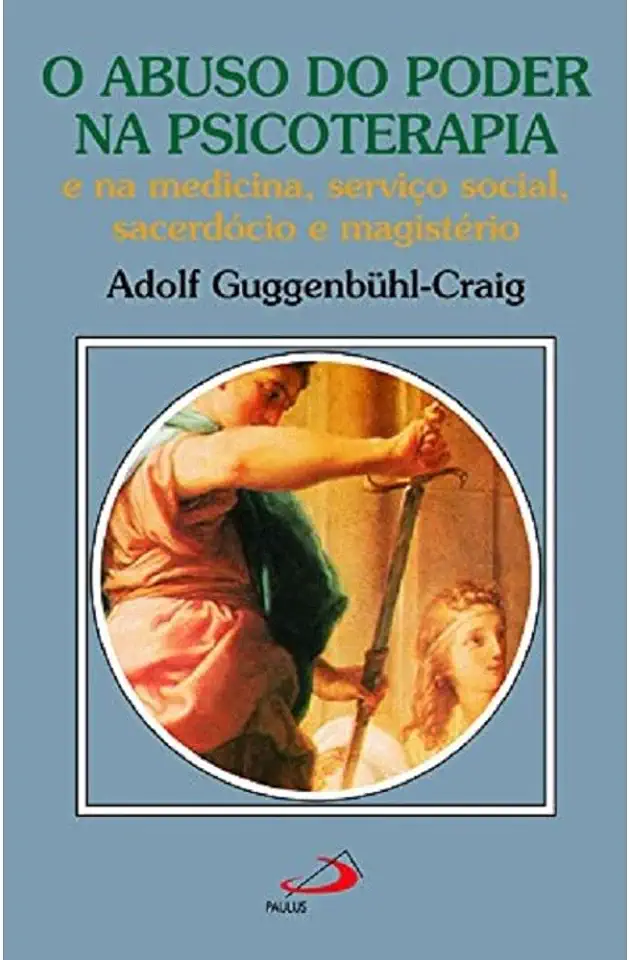
The Abuse of Power in Psychotherapy - Adolf Guggenbuhl Craig
The Abuse of Power in Psychotherapy: A Book Review
In his book, "The Abuse of Power in Psychotherapy," Adolf Guggenbuhl-Craig explores the dark side of psychotherapy, revealing the potential for therapists to abuse their power and the devastating impact this can have on their clients. Drawing on his extensive experience as a psychotherapist and his deep understanding of human nature, Guggenbuhl-Craig provides a comprehensive analysis of the dynamics of power in the therapeutic relationship and offers practical strategies for preventing and addressing abuse.
The Power Dynamics in Psychotherapy
Psychotherapy is a unique relationship in which one person, the therapist, has a significant amount of power over the other, the client. This power imbalance can be used for good, to help clients heal and grow, or it can be abused, leading to devastating consequences.
Guggenbuhl-Craig identifies several factors that contribute to the power imbalance in psychotherapy, including:
- The therapist's expertise: Clients often come to therapy feeling vulnerable and in need of help. They may idealize their therapist and see them as an authority figure who knows what is best for them.
- The client's dependency: Clients are often dependent on their therapist for emotional support and guidance. This dependency can make it difficult for them to challenge their therapist or to set boundaries.
- The therapist's role: Therapists are often seen as healers and saviors. This can lead to a sense of entitlement and a belief that they can do no wrong.
The Consequences of Abuse of Power in Psychotherapy
The abuse of power in psychotherapy can have a devastating impact on clients. Some of the potential consequences include:
- Psychological damage: Abuse of power can lead to a variety of psychological problems, including anxiety, depression, post-traumatic stress disorder (PTSD), and borderline personality disorder.
- Physical damage: In some cases, abuse of power can lead to physical harm, such as sexual abuse or physical assault.
- Financial damage: Therapists who abuse their power may also exploit their clients financially, by charging excessive fees or by pressuring clients to purchase unnecessary products or services.
- Spiritual damage: Abuse of power can also damage a client's spiritual well-being, leading to a loss of faith in themselves, in others, and in the world.
Preventing and Addressing Abuse of Power in Psychotherapy
Guggenbuhl-Craig offers a number of practical strategies for preventing and addressing abuse of power in psychotherapy, including:
- Educating clients about the potential for abuse: Clients should be informed about the power dynamics in psychotherapy and the potential for abuse. They should also be encouraged to set boundaries and to challenge their therapist if they feel uncomfortable.
- Training therapists about the ethics of psychotherapy: Therapists should be trained about the ethical principles of psychotherapy and the importance of respecting client autonomy. They should also be supervised by experienced therapists who can help them to identify and address any potential problems.
- Creating a supportive environment for clients: Clients should feel safe and supported in therapy. They should be able to express their feelings and concerns without fear of judgment or retaliation.
- Holding therapists accountable: Therapists who abuse their power should be held accountable for their actions. This may involve losing their license to practice, paying damages to their clients, or even facing criminal charges.
Conclusion
"The Abuse of Power in Psychotherapy" is a powerful and important book that sheds light on the dark side of psychotherapy. Guggenbuhl-Craig's insights are essential for anyone who is involved in psychotherapy, either as a client or as a therapist. By understanding the dynamics of power in the therapeutic relationship and by taking steps to prevent and address abuse, we can help to ensure that psychotherapy is a safe and healing experience for all.